Hear world-class legal scholarship and more
What can space law learn from cyber law, and how does national security law interact with commercial regulation of these critical technologies? Join Dr Cassandra Steer FHEA as she speaks with Dr Dominique Dalla-Pozza, Senior Lecturer at ANU College of Law and one of Australia’s leading experts on national security law. They talk about the new Australian “Critical Infrastructures” bill that came out of Home Affairs, what it means to regulate space technologies and cyber technologies from a national security perspective, and also the diversity of careers and issues in national security.

The “National security and freedom of the press” panel discussion provided an opportunity to explore the legal framework surrounding the freedom of the press in Australia, but also the protection of whistleblowers, the breadth of offences relating to disclosure of classified and national security information, public scrutiny of intelligence and defence agency investigations and processes, the context of the actions in light of recent legislative developments and the issue and breadth of the search warrants involved.

When the US created Space Force last year, it raised a lot of eyebrows, and some ridicule. But did you know that US Air Force Space Command existed for decades already? And that China already has a space force? And that Canada, France and Japan are all seeking set up something similar? Even with this increased militarisation of space, there is still a lot of law governing these activities. Space is anything but a lawless “Wild West”, and to learn more Dr Cassandra Steer speaks with Duncan Blake, former space lawyer and Wing Commander with the Royal Australian Air Force, currently Senior Researcher at UNSW Canberra. What does space law say about military activities in space?
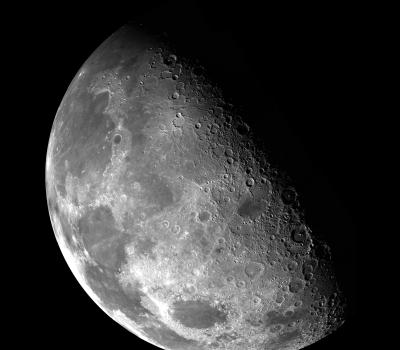
Presented by Senior Lecturer Dilan Thampapillai this research seminar looks at how technological capabilities of artificial intelligence (AI) are developing to a point where machine-driven creativity could present a significant threat to the viability of copyright law. Can the rules of authorship and ownership expand to cover AI-created works? How should competing claims of ownership be addressed?

Meet Lisa Qin (BComm/LLB ‘07), a writer, educator and consultant who pivoted from her early career as a corporate lawyer to work for UNICEF developing, planning and managing education programs for China's most vulnerable children.

In this research seminar, Scott Chamberlain outlines his “Lex Automagica” Project. The premise of “Lex Automagica” is that the “tech-stack” of blockchain + digital assets + smart contracts + AI + augmented reality can automate away swathes of regulation and law, delivering scalable justice by collapsing thousands of bureaucrats, police, lawyers and accountants into code and market dynamics.

The Australian Capital Territory has committed itself to a trial of Indigenous Experience Reports in sentencing, to be called Ngattai Reports (which means ‘listen’ in Ngunnawal). In this presentation, Dr Anthony Hopkins will review developments that have led us to the point of this trial. Drawing upon his research in Australia and Canada, he will consider the potential for these reports to enable sentencing courts to listen to and engage with the lived experience of Indigenous offenders.

Can we really compare space law with the law of the sea? Join ANU space lawyer Dr Cassandra Steer as she talks with Law of the Sea and Space Law expert Professor Dale Stephens from the University of Adelaide Law School, to uncover where there are similarities and where they are worlds apart.
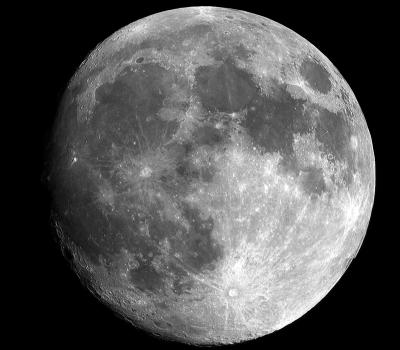
Presented by Professor Kimmo Nuotio, this seminar explores how the strengthening of the rule of law links with a variety of goals including the UN Sustainable Development Goals (SDG). The UN SDGs create a common reference to all legal orders with their distinctive concepts of rule of law, be they of common law type or civil law, French 'droit d'état' or German 'Rechtsstaat', or rule of law with Chinese characteristics. It is worth noting that a 'comparative approach' seems to be on the rise. Rule of law index has been introduced, and the Venice Commission of the Council of Europe has introduced a rule of law checklist.

ANU Master of Laws program director Dr Philippa Ryan speaks with Professor Donald Rothwell FAAL, convenor of Law of the Sea (LAWS8253) about regulations, piracy, freedoms and navigation of the sea.
Dr Ryan asks how sea borders and maritime boundaries are applied, while Professor Rothwell touches on the tension and balancing act of rights and entitlements of coastal states with the freedom of the sea.

There is a general consensus that the long-term sustainability of space activities needs to be at the forefront of all space governance structures, including national legislation, compliance with existing international treaties, and the development of new norms. Space traffic management, the increase of space debris, militarisation, and the environmental impact of launches are all of central concern in space governance.
In this research seminar, Dr Cassandra Steer argues why is a need for a strong notion of “good space citizenship” to incentivise responsible behaviour by all space actors. This project asserts that what can be learned from Australian Indigenous knowledge about cosmology, intergenerational relationship and responsibility, and law, has the potential to impact the way we behave in the global commons of space.

This seminar presented by Professor Kevin Jon Heller asks if John F. Kennedy had not been assassinated on November 22, 1963, would the US have committed ground troops to Vietnam – a decision that led to what is widely recognised as the worst debacle in American military history?
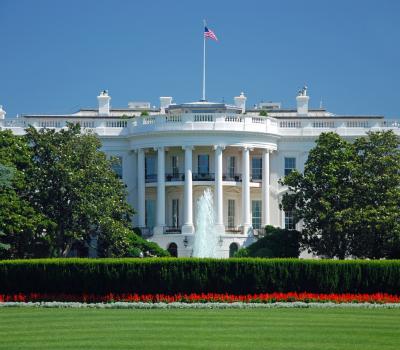
ANU Master of Laws program director Dr Philippa Ryan speaks with Dr Jonathan Liljeblad, convenor of International Law of the Environment (LAWS8264). Learn how its ethical framework and development shapes our understanding of international environmental policies and laws.
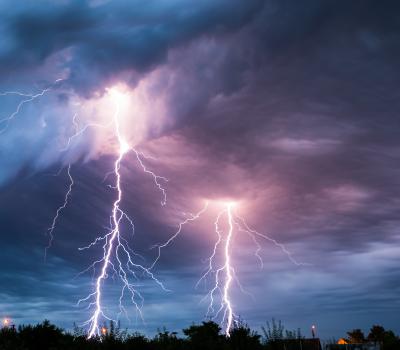
We are entering a new era of space. While many people think of space as a “lawless frontier”, the reality is we’ve had a successful international legal framework for space since the beginning of the space age.
As our activities in space become more complex and exciting, there are many questions as to how to govern and regulate these new technologies, as well as the ways they impact our daily lives. How do we deal with arms control in space, and how do bodies of law like the law of armed conflict, environmental law, human rights, intellectual property, finance and insurance, national security, cyber law and treaty interpretation apply to space? What are the rules governing future activities like the mining of natural resources, or space tourism? What licences and permits are needed to launch and operate objects in space? And how does the Australian Space Agency and it’s counterparts in other countries govern national space activities?
Join Dr. Cassandra Steer as she talks about the key space law and policy issues facing us in the 21st century, with leading experts in space law from Australia and around the world, and other fields of law, which may surprise you in their application to space.

Join space law expert and InSpace Mission Specialist Dr Cassandra Steer as she explores the legal and policy aspects of what's happening in space and how it affects us nationally and globally.

ANU College of Law Director of Clinical and Internship Courses, Dr Anthony Hopkins, led an information session on placement opportunities for Bachelor of Laws and Juris Doctor students on 25 September at the Moot Court foyer.
Convenors and students shared their insights on clinical and internship courses including the Community Law Clinic, Environmental Law Clinic, International Law Clinic, Prison Legal Literacy Clinic and more.
For more information about our opportunities, please visit: law.anu.edu.au/current-students/…/clinical-courses
0:27 Acknowledgement of Country
2:24 Background of Dr Anthony Hopkins
5:11 Motivation for studying law
7:27 What to expect
8:16 LRSJ Director, Associate Professor Vivien Holmes
14:07 Felicity Clement-Jones (Youth Law Clinic)
17:38 Danica Smith (Kimberley Community Legal Services)
20:12 Natasha Wykes (Environmental Law Clinic)
23:23 Sinead Allen (Prison Legal Literacy Clinic)
27:39 Anna Stewart-Yates (Kimberley Community Legal Services)
32:40 Dr Anthony Hopkins (International Law Clinic)
33:32 Dr Anthony Hopkins (Myanmar Law Clinic)
33:58 Dr Anthony Hopkins (Legal Education for True Justice)
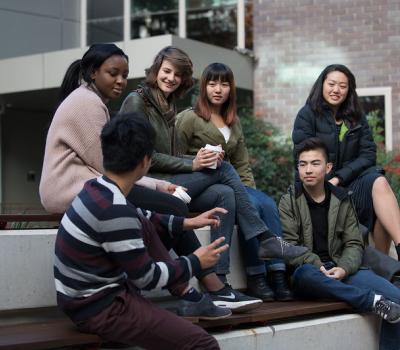
How should we regulate commercial actors who want to mine the moon for resources? It’s not science fiction, it’s a question the international community is facing right now.

ANU Law Reform and Social Justice (LRSJ) presents a careers seminar with His Honour Dr John Lowndes, former Chief Judge of the Local Court of the Northern Territory.
In a conversation moderated by ANU College of Law Associate Dean (Education) and acting LRSJ Director, Associate Professor Vivien Holmes, Dr Lowndes shared his experience with current students and offered helpful advice.
1:15 Origins of Dr Lowndes’ study and practice of law
5:03 Student introductions
8:20 Dr Lowndes’ experience as a coroner
9:48 “Culture shock” of arriving in the NT
12:34 Criminal law reform in the NT
16:26 Mandatory sentencing in the NT
19:45 Mandatory sentencing for minors
20:45 “Individualised justice” as an alternative
27:10 Developing the skill set of being judge
35:52 Mitigating factors in sentencing
40:00 “Professional” relationship between courts and police
41:12 Career-shaping cases
44:58 Mental health treatment orders
51:12 Challenges in pursuing social justice
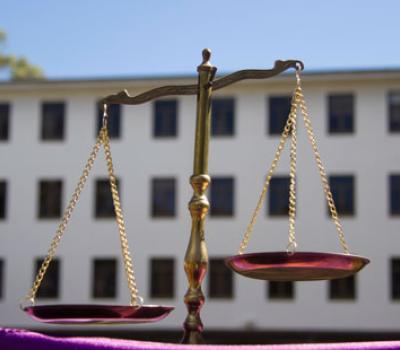
Considering going to the Bar in the future? Curious about what's involved day to day in the professional life of a "silk"? These questions and more were answered at this 10 March 2020 seminar presented by Dermot Ryan SC, who has 36 years at the Bar including 21 years as Senior Counsel. ANU Master of Laws program director, Dr Philippa Ryan, also shared her insight at the seminar.
Read 10 tips for going to the Bar here.

Dr Joshua Neoh seeks to answer the question of why the relationship between anti-discrimination principles and freedom of religion is so controversial in Western democracies today. The answer lies partly in the gradual erosion of the distinctive value of religion in the liberal democratic state. Having lost sight of the distinctive value of religion, it is a matter of course that religious freedom too will lose its place in the pantheon of political rights. Hence, when faced with the claims of anti-discrimination, claims of religious freedom seem to have lost their bearing.
